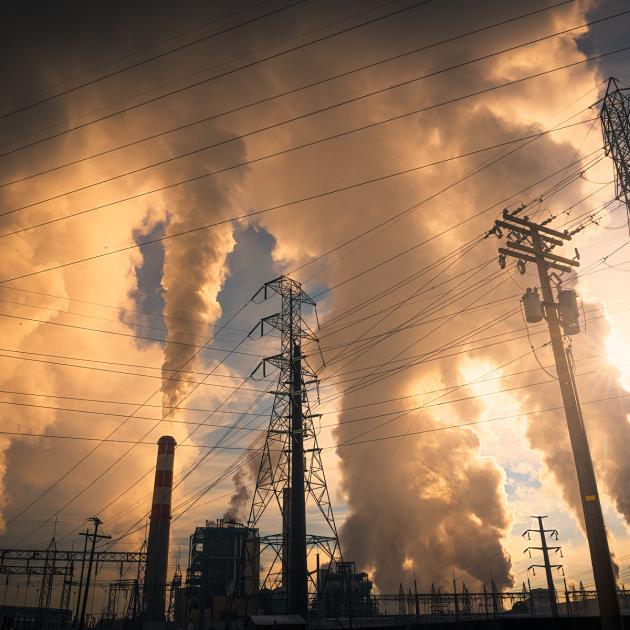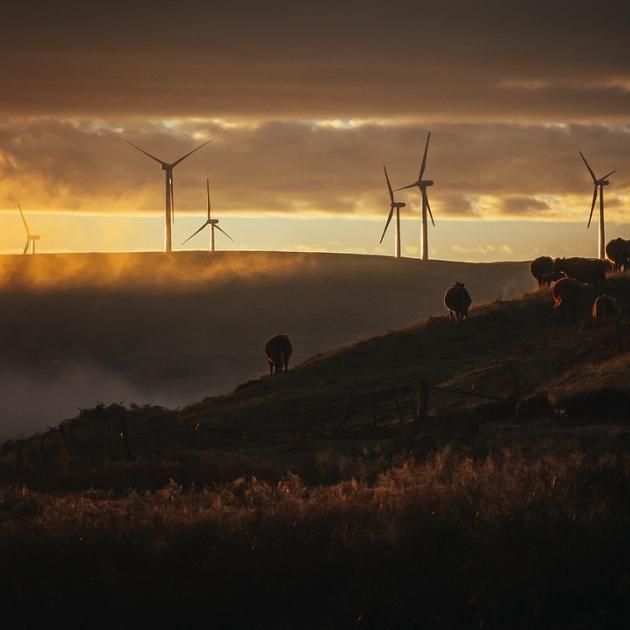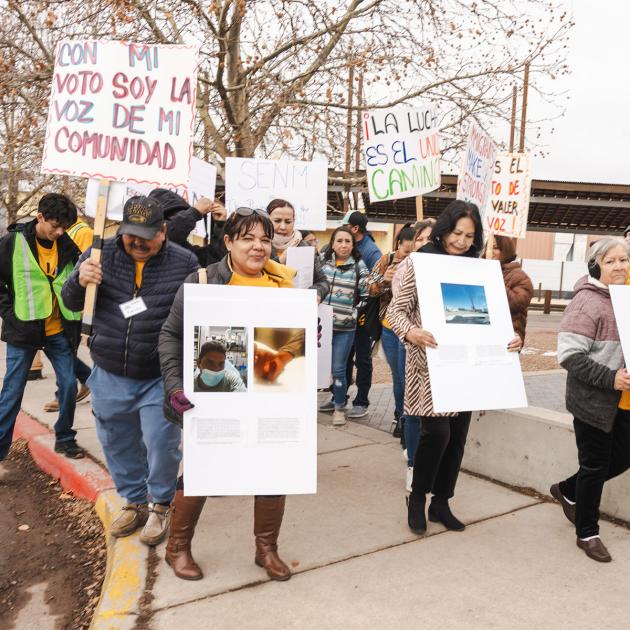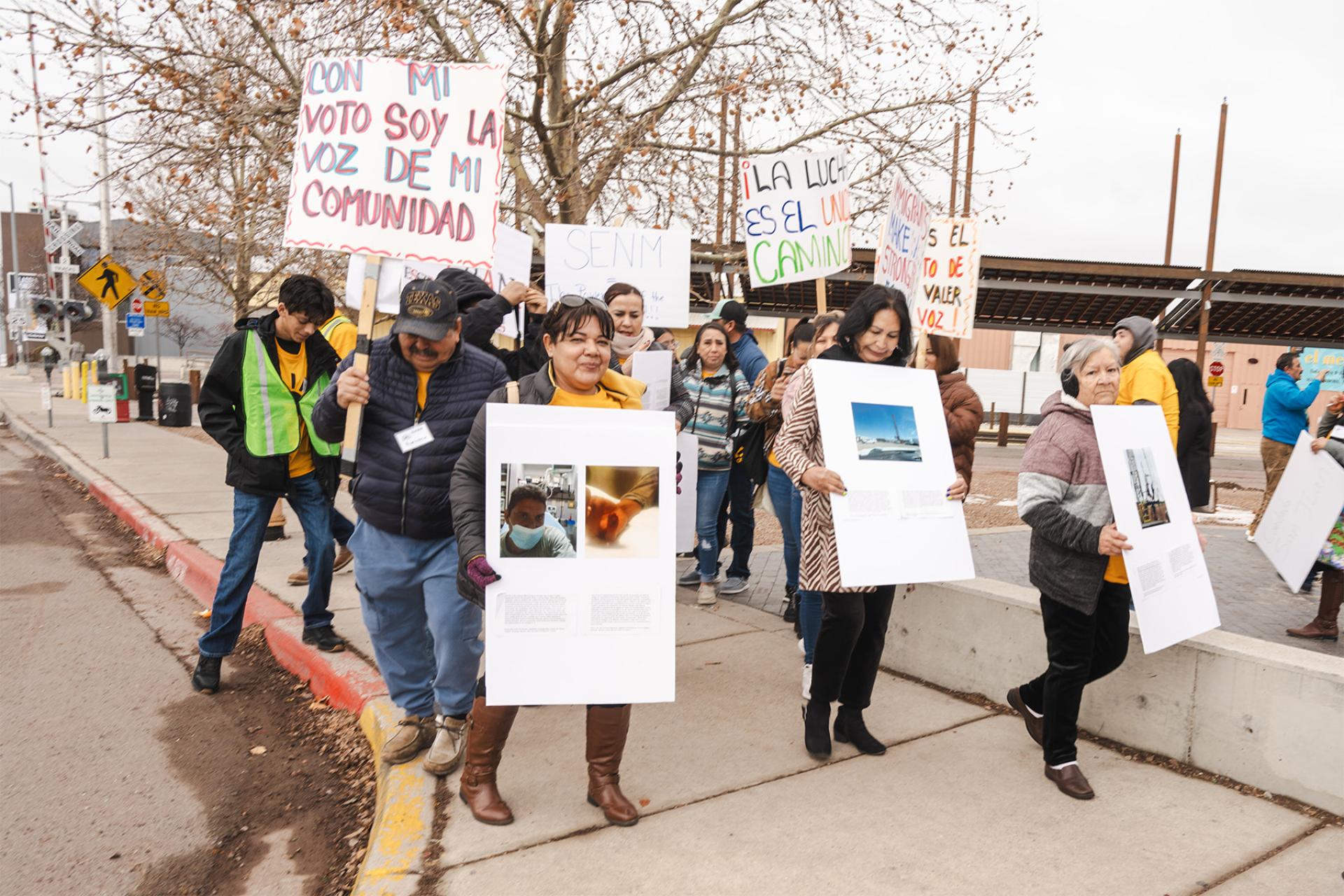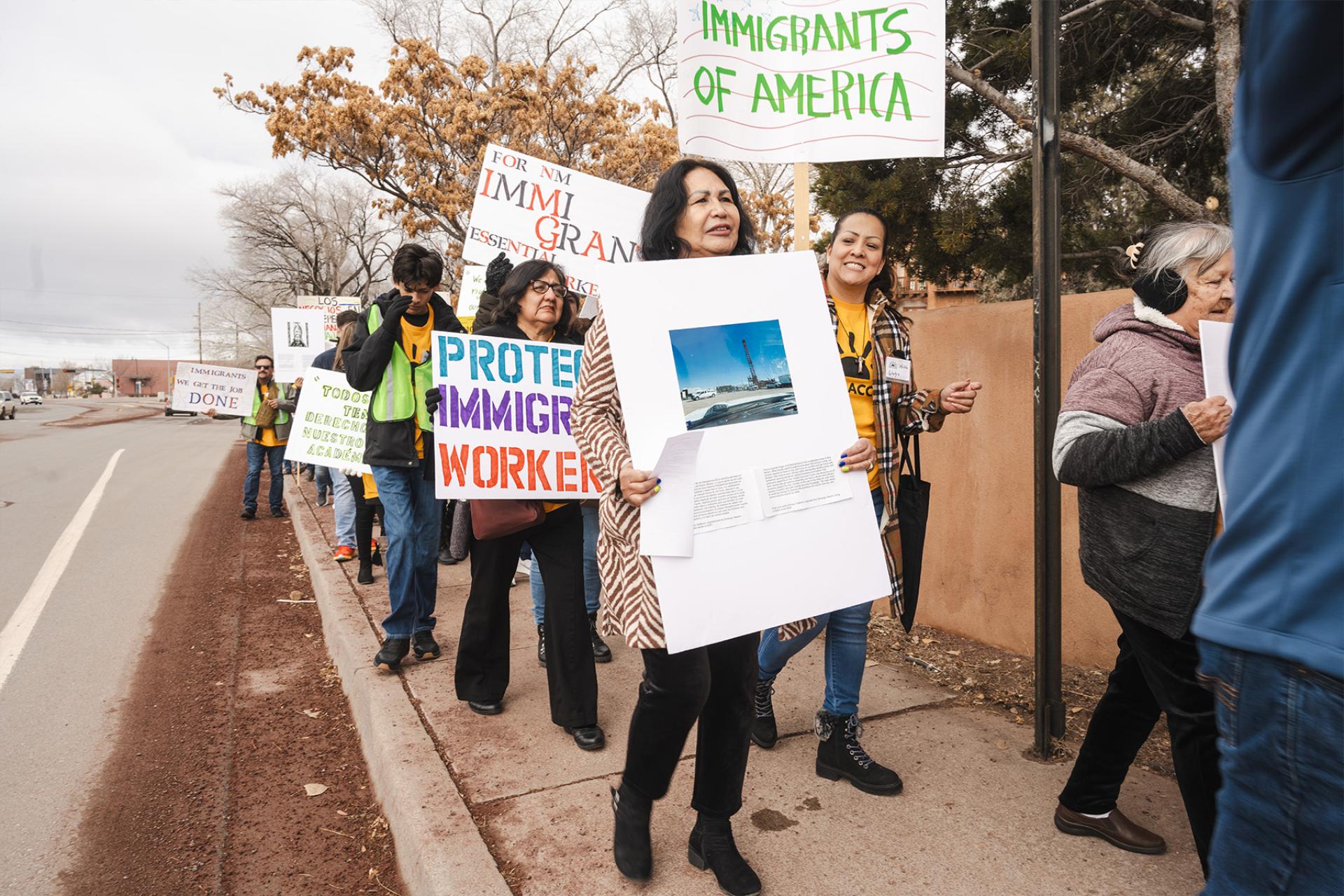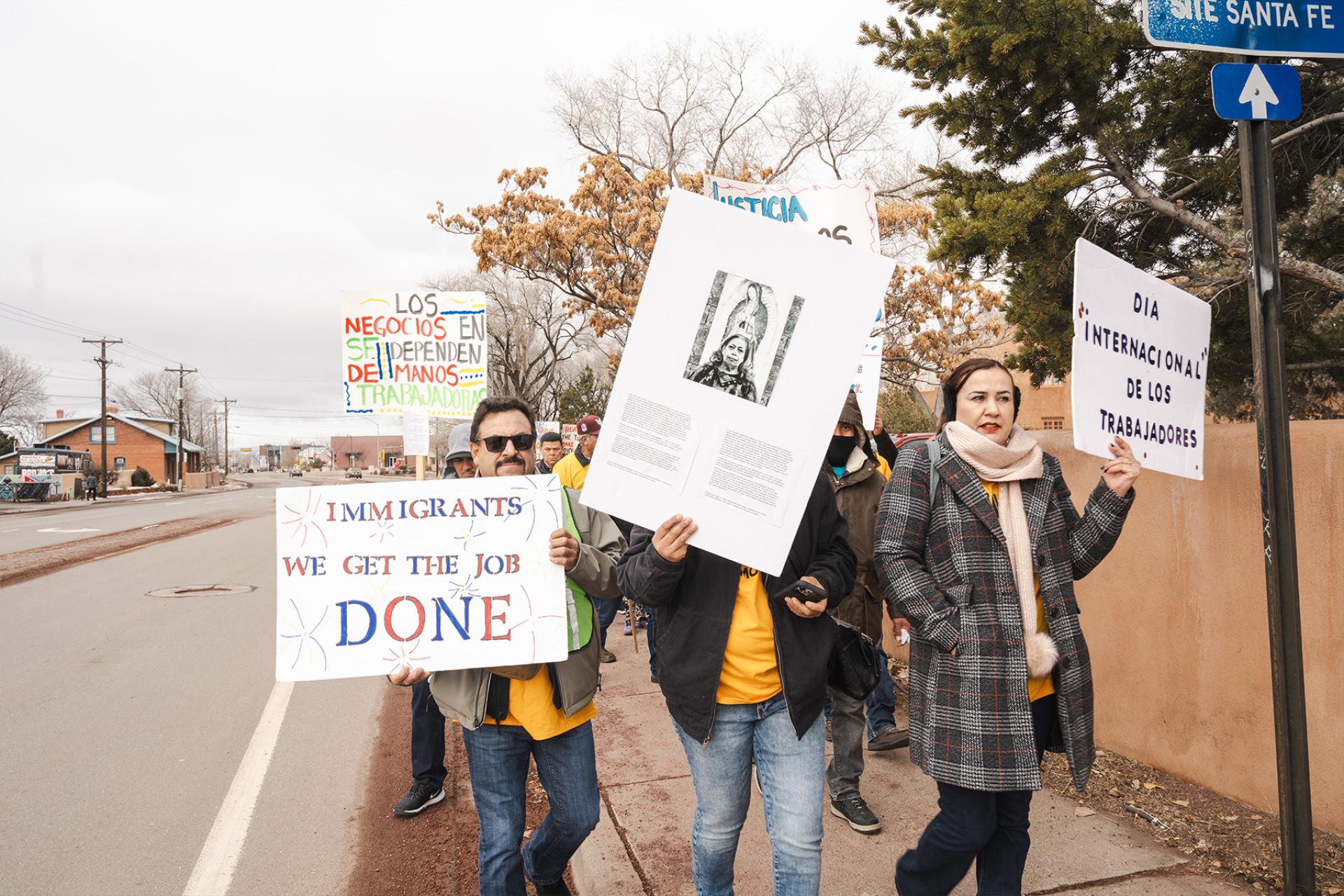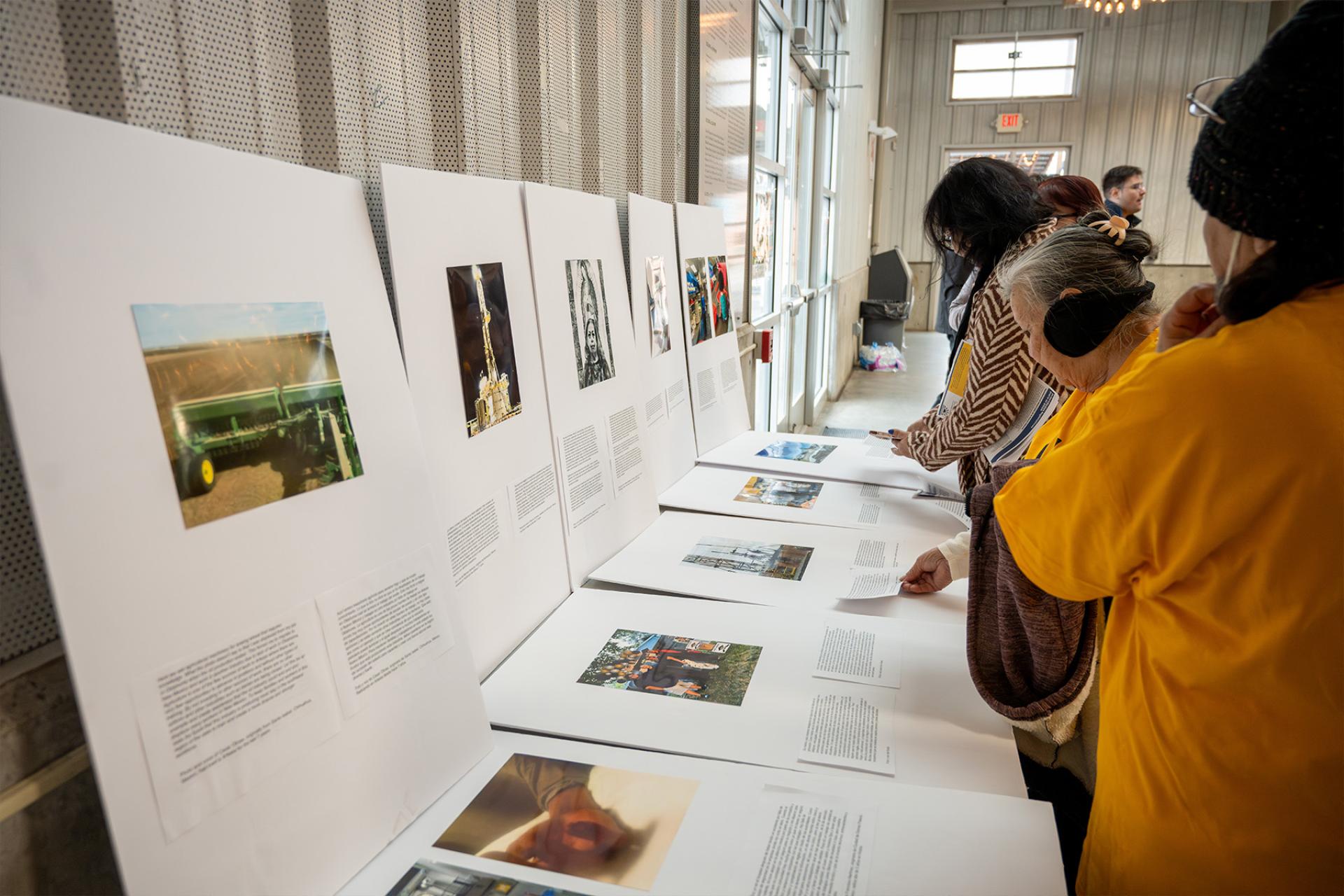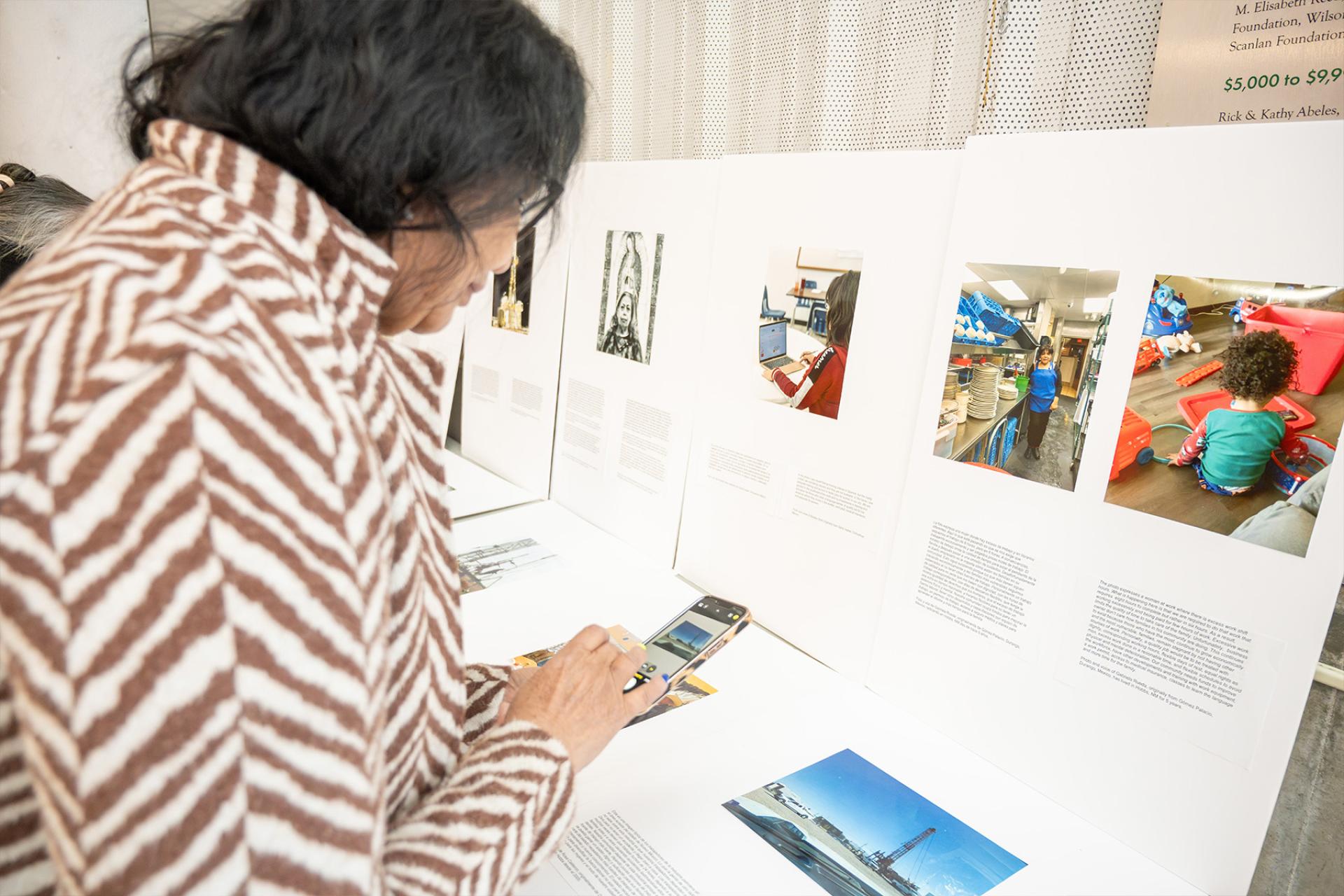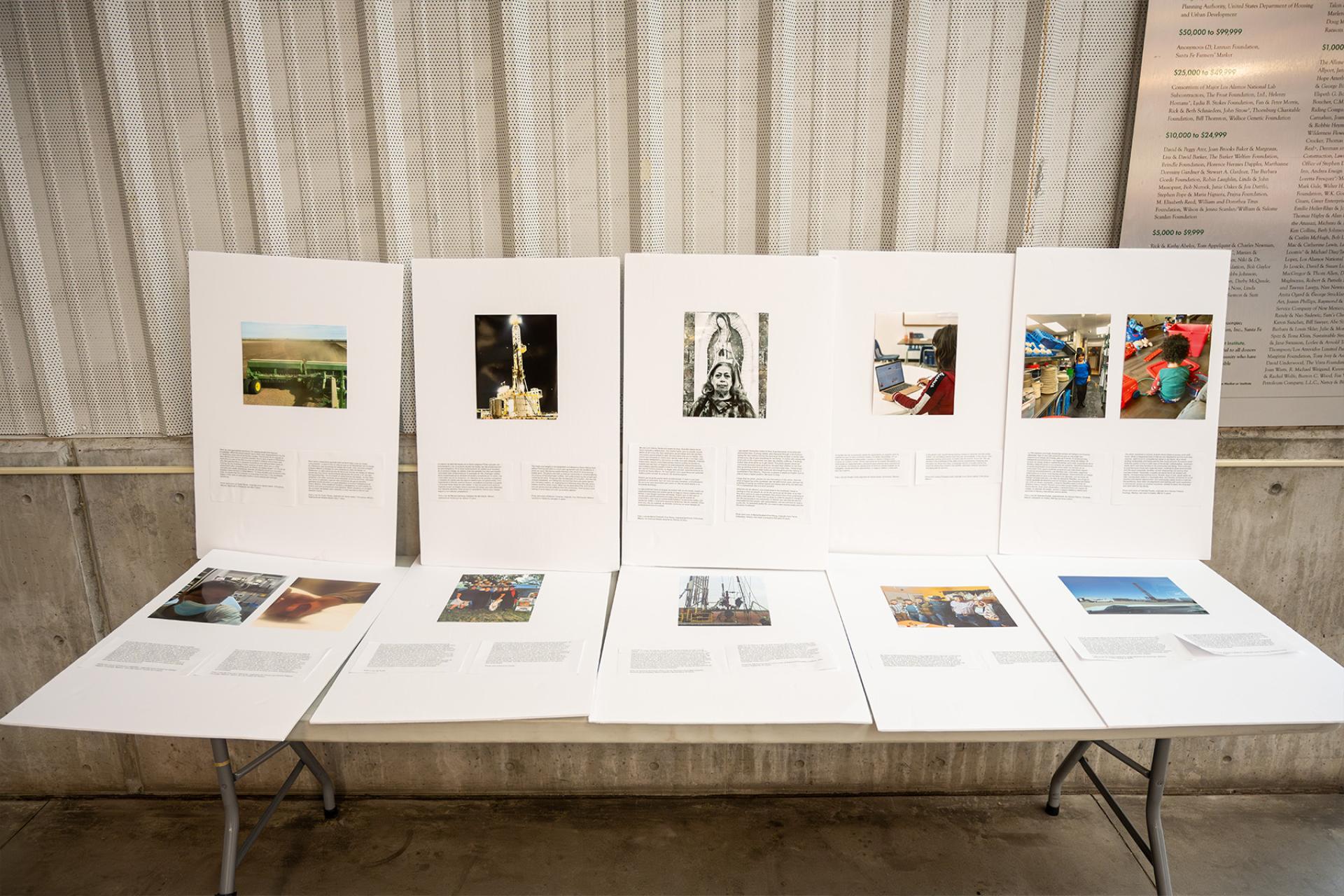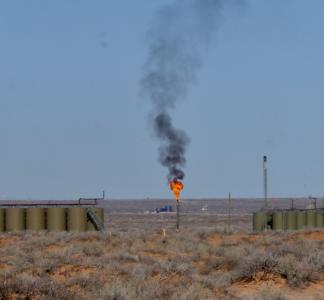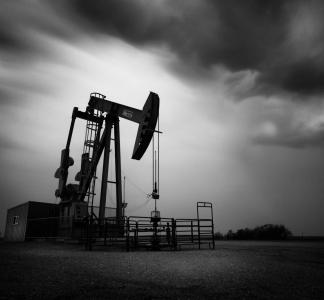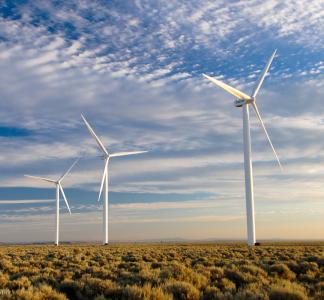In their own words: Oil and gas industry workers don’t want to be left behind
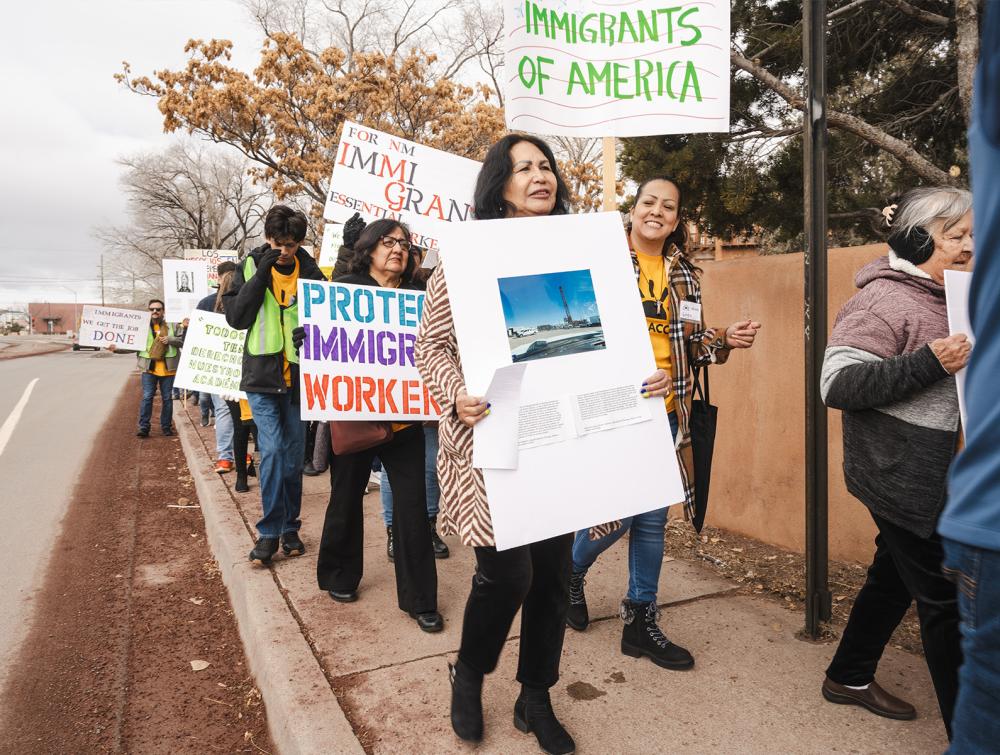
People in New Mexico advocating for better conditions for oil & gas workers.
Anna Mabel Gonzalez
Renewable energy transition can’t come at communities’ expense.
Growing up in Venezuela, I had a moment when I was drawn to the oil industry, the powerhouse of the country’s economy. With a knack for chemistry, I (very) briefly entertained the idea of a career in the industry. But then I decided to become a journalist instead. As I learned more about the oil industry, I realized it had many problems, and I was glad I didn't go into it.
But many people don’t have the options I did. For some, jobs in or supporting the fossil fuel industry are among the very few available to care for their families. Nevertheless, they'd love safer, healthier, and more stable options.
Across the United States, several states and communities heavily depend on fossil fuels for revenue. Yet, we see an all too familiar pattern regarding who bears the brunt of the industry's challenges and pollution. Like many of the big corporate-led sectors in the U.S.—from housing to agriculture—a fossil fuel-dependent economy disproportionately burdens Black, Latinx, Indigenous, and immigrant and industry worker communities.
Oil executives can make huge profits because of the people doing the dirty, dangerous and isolating work for them.
All these realities come into stark focus in the Permian Basin in Southeast New Mexico. This is a region that is dominated by oil and gas development and where few other jobs exist. It’s a region that yields a ton of money for the state from that oil and gas development. And it’s a region where the oil and gas industry hugely depends on Latinx and immigrant workers.
New Mexico, and the U.S. as a whole, must transition to renewable energy. But as they make that change, they need to ensure these workers, who have played such a crucial role in the economy, are not left behind. The state must value their expertise and livelihoods as it navigates the necessary transition to a healthier, more sustainable economy.
We need a just transition. And we need to make sure we don't leave industry workers behind.
Somos un Pueblo Unido, the New Mexico immigrant and worker rights organization that commissioned the UNM study, also works directly with these communities to bring their stories to the policymakers in the state’s capital. The organization is also the only one organizing oil and gas workers in New Mexico. In partnership with Somos and New Mexico Health Equity Partnership, we bring you excerpts from their latest Workers’ Voices series—thoughts from current and former oil and gas industry workers and their hopes for the future amidst an energy transition.
The following quotes have been translated from Spanish. The interviews were conducted by Somos Un Pueblo Unido:
"Our community is contaminated by the burning of H2s (Hydrogen sulfide), soil contaminated by the oil spill and carried by the wind. Things are like this because of corruption, the interests of large companies ... [we need] new job sectors that are different from the oil industry, have access to job training to work safely and with competitive salaries."
Marcos Carranza, originally from Michoacán, Mexico, living in Hobbs for the past 17 years
"In reality, and in my community, [good job opportunities do not] exist but we all have the right to a decent job where we can express our doubts, have a good salary to cover our needs, and access to a job where there is training, but this is not the case. For me, a quality job would be having a work permit, being able to learn the language, and everything else mentioned."
Ana Laura, originally from Chihuahua, Mexico, has been living in Hobbs for the past 13 years
"Those who have the most continue to grow economically and the most vulnerable families remain stagnant by not having other sources of work ... Our community needs funds to improve the workforce, have other developments and training with work equipment, a work permit, access to medical insurance, classes to learn the language and more time for the family."
Gabriela Rueda, originally from Gómez Palacio, Mexico, living in Hobbs for the past 5 years
"Our community depends on this industry because it is the only strong source of work, leaving few job options where they can earn a decent and sufficient economic support for their families ... The state needs to invest our money to diversify the workforce not only for men but, also women and the rest of our state."
Rosa Calderon, originally from Durango, Mexico, living in Hobbs for the past 19 years
"[When I had an accident due to lack of safety equipment], I had no medical care support from the company and it turns out that they did not have insurance for their business, and they left me on my own ... My case is not unique, but I would like for me and other workers who have been injured to receive attention and have quality work.”
Francisco Martínez, originally from Durango, Mexico, living in Hobbs for the past 5 years
“I was displaced from my job in Oklahoma when the oil production ended. This forced me to migrate to New Mexico. Let this be an example and create awareness that the oil industry could end and also displace many workers."
Cesar Olivas, originally from Chihuahua, Mexico
“We are ignored in the southeast of the state and no investments in training and education for those who have a language barrier. A quality job for me would be where they invest in the worker, well paid, medical insurance and adequate for women.”
Rosalia Solis, originally from Chihuahua, México
"The state must invest our dollars generated in the Southeast to develop the workforce and create quality jobs in our communities."
María Elena Martínez, originally from Chihuahua, Mexico, living in Hobbs for the past 17 years
"What we can do about it, is to invest more in the Southeast. Invest in training so that our people do not do the same job all the time, or so that they have options in case of accidents that prevent them from continuing to work in the same job ... We are not disposable but real people, with real problems, and we just want to have a quality life.”
María Elizabeth Ríos Wong, originally from Chihuahua, Mexico, living in Artesia for the past 23 years
"On this side of the state, a lot of money is generated, but it is not reflected in educational options. I see the suffering of other mothers who have children working in the oil industry. They have experienced serious accidents, and I do not want that for my children.”
Karla, a mother (no last name or other information provided)
"[Industry employers] protect the industry more than the worker, a human life. I want my son and all the workers to be given preparation and protection to do their job better and without so much risk."
Ramona González, whose son works in the field (no more information provided)
These workers all have one thing in common: they understand that the oil and gas industry has many flaws and could end. They just want to be considered when that happens.
Somos Un Pueblo Unido’s advocacy—with and on behalf of the immigrant communities they serve—was able to secure several wins in the 2024 New Mexico state legislative session:
In the face of a transition away from New Mexico’s reliance on oil and gas, it is crucial the state invests in better working conditions and safety nets for workers in emerging industries, provides equitable access to workforce development and adult education programs, and invests significantly in supplemental income for workers enrolled in training.
By actively engaging oil and gas workers in the energy transition, states and the nation can embrace their skills and knowledge to drive innovation and facilitate a smooth transition to cleaner energy alternatives. Providing support, retraining opportunities and pathways to new employment sectors ensures that these workers are not left behind but rather empowered to thrive in a rapidly evolving energy landscape.
